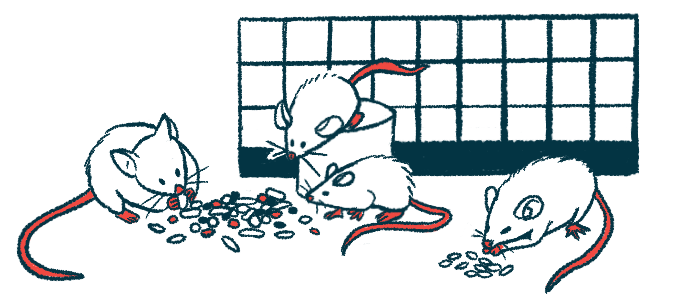Brain stimulation leads to sustained memory benefits in Rett mice
Repeated use of DBS may promote even longer-term improvements: Study
Written by |

Electrically stimulating a specific region of the brain led to improvements in memory in a mouse model of Rett syndrome — and these benefits persisted for several weeks after the brain stimulation was stopped, a new study reports.
Repeated brain stimulation could promote even longer-term memory improvements, according to researchers.
While the scientists noted that “it is not yet possible to speculate intelligently on how one would translate the current study in [Rett] mice into human terms,” they say their findings highlight the need for further study into the use of deep brain stimulation, or DBS, in Rett.
The study, “Forniceal deep brain stimulation in a mouse model of Rett syndrome increases neurogenesis and hippocampal memory beyond the treatment period,” was published in the journal Brain Stimulation.
Testing DBS’ effects in a mouse model of Rett
DBS is a surgical technique in which an electrode is implanted into the brain to deliver gentle electrical stimulation to activate specific brain regions. It’s already in use in some motor disorders, such as Parkinson’s disease, where it’s been shown to ease symptoms like tremor and stiffness in certain patients.
In recent years, DBS also has been explored in a variety of cognitive and psychological conditions.
In a previous study in Rett, a team of scientists in the U.S. found that administering DBS into the fornix — a part of the brain that’s involved in memory — led to improvements in memory in a mouse model of the genetic disorder.
But “at the time, we did not investigate how long these benefits might last,” the scientists wrote.
Now, the team aimed to learn more about the effects of stimulating the brain — and wanted to gain greater insight into the biological underpinnings of why DBS may improve memory in Rett syndrome.
“We … sought to determine the duration of benefits from two-week [DBS stimulation of the fornix], whether this improvement could be prolonged by repeating DBS treatment, and if so, the optimal frequency for such treatments,” the scientists wrote.
In experiments in the lab, some Rett mice were administered two weeks of fornix-targeting DBS, while other mice were given a sham procedure. The researchers then ran a standardized assessment of memory that looks at whether mice will freeze in response to something they’ve been trained to fear.
The results showed that mice given DBS performed significantly better on the memory test, and the difference was maintained until at least six weeks after the end of DBS. By nine weeks after DBS, the mice no longer showed a significant improvement in memory.
Stimulating the brain a second time in Rett mice
In subsequent experiments, the researchers re-administered DBS at six weeks after the initial round of brain stimulation. These results showed that re-administering the stimulation led to continued improvements in memory after several additional rounds of DBS given every six weeks.
The scientists then analyzed the mice’s brains to better understand the effects of DBS in the fornix. They found that untreated Rett mice had less growth of new nerve cells in the hippocampus, a region of the brain critical for memory. But DBS increased nerve cell growth in this region to levels comparable to what was seen in non-Rett mice.
The increase in nerve cell growth was evident at six weeks after DBS, when memory improvements were still evident. However, by nine weeks, when memory improvements were no longer detectable, nerve cell growth also was back to pre-DBS levels.
Levels of brain-derived neurotrophic factor or BDNF, a signaling molecule that helps promote nerve cell growth, were increased in mice given DBS. Stimulating the brain also led to the growth of more nerve cells positive for MeCP2. Rett is mostly caused by mutations in the gene coding for the MeCP2 protein.
Based on these findings, the researches said that “the most likely mechanism underlying memory improvement is adult hippocampal neurogenesis [nerve cell growth].”
[These findings may have] implications for many more common disorders that involve suppression or loss of neurogenesis [the development of nerve cells in the brain], such as depression.
The team noted that, if DBS can indeed promote nerve cell growth, this may have “implications for many more common disorders that involve suppression or loss of neurogenesis, such as depression.”
This study only used one type of DBS, so further work will be needed to examine how different DBS settings might impact brain cell growth and memory outcomes, the team noted.
While this study showed that DBS led to memory benefits in Rett mice, it’s far too early to tell how any results would translate into human terms, according to the researchers.
“Except,” they noted, “that the duration of treatment effects in mice roughly parallels the length of time it takes for the neurons born during DBS treatment to find their way and integrate into the circuit (and that human newborn neurons take longer to mature).”







